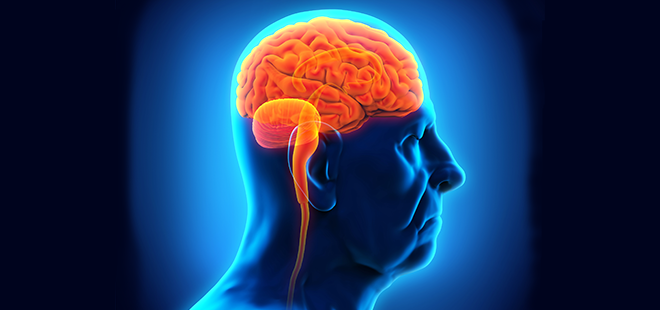
Some people suffer from temporary brain fogginess and chalk it up to a passing annoyance. It happens to everyone, right? – But imagine if you went into a brain fog and never came out again? Dementia affects the brain in myriad ways and it can slowly get worse with age, which means it one of the most debilitating and life altering diseases. Dementia affects the brain’s ability to process information, to recall memories and even to complete basic motor functions. Now a new study shows that disordered breathing – obstructive sleep apnea – may actually increase your risk of suffering from dementia.
In the medical field, the process of memory and cognition is still a bit of a mystery. You can’t necessarily see – with the naked eye – the part of the brain that gives us the ability to remember and process information. In recent years, however, researchers and doctors have been able to use magnetic resonance imaging to see this part of the brain – it literally lights up when it’s active. Using these tools has also allowed researchers to measure the negative affect of sleep apnea and its ability to cut off oxygen flow to the brain, which can have deleterious consequences.
Just recently, a study was released that got a closer look at the sleepless brain. Researchers at the Honolulu-Asia Aging Study followed around 167 Japanese-American men – with a mean age of 84 – until they died. The scientists had the men undergo polysomnographic sleep tests to test for obstructive sleep apnea and measure its severity. After the men passed away, the doctors then examined the patients’ brains.
What they saw in these brains was a real live glimpse of what low oxygen can flow can to do the brain’s physiology. According to the study, the men with the lowest blood oxygen levels at night were four times more likely to have brain damage caused by mini strokes. These mini strokes are usually a precursor to dementia. Although many people aren’t even aware of these strokes – they can be very serious and damaging. Also, the studied showed that men who spend the least amount of time in REM sleep were more likely to suffer from loss of brain cells and brain atrophy.
In the end, this study should be a wake up call to all sleep apnea suffers out there who are still on the fence about CPAP treatment. Just because you can’t see the effect your sleep apnea is having on your brain, it doesn’t mean it isn’t happening. There could be a storm of activity going on that could one day lead to dementia. While the researchers note that more studies will have to been done – on a wider demographic of people – they are still fairly confident that sleep apnea can have extremely damaging affects on the brain. In the end, simply sticking to CPAP may be the secret to staying sharp and focused well into your golden years.
Source: Neurology. 2015 Jan 20;84(3):296-303. doi: 10.1212/WNL.0000000000001163. Epub 2014 Dec 10. “Associations of brain lesions at autopsy with polysomnography features before death.”











